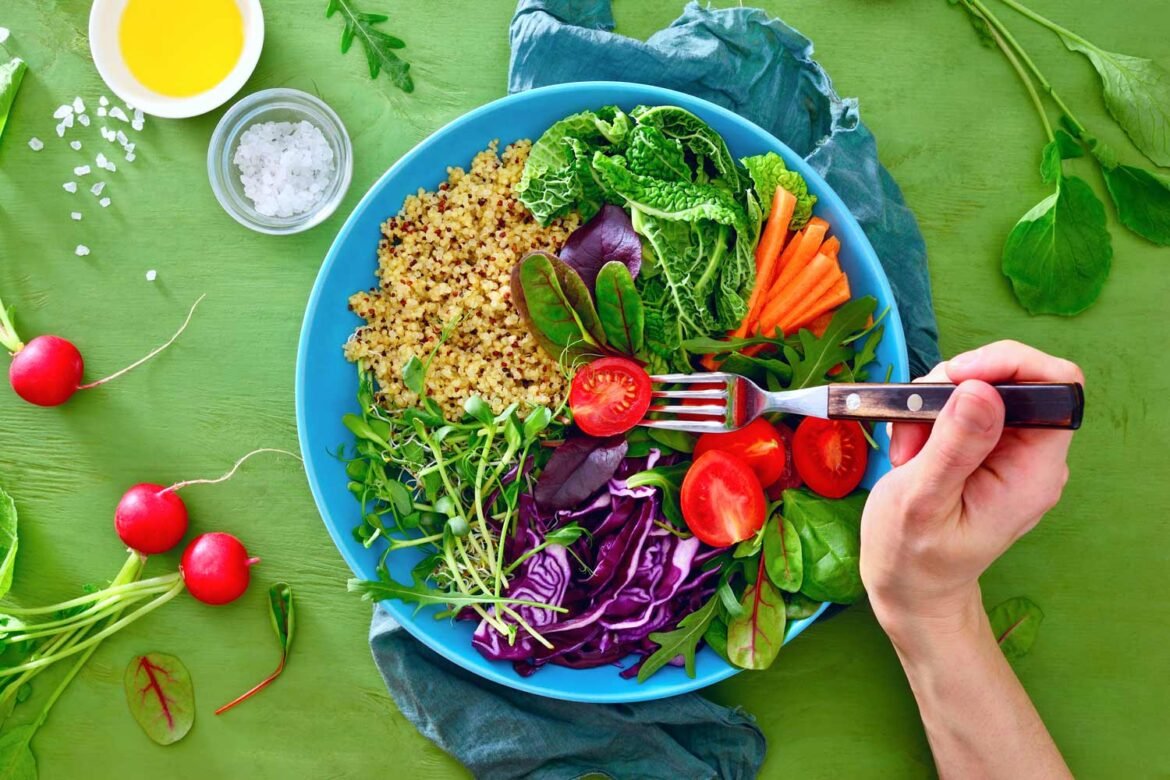Researchers and sustenance specialists have suggested eating five, seven, or even 10 servings of foods grown from the ground a day for ideal wellbeing throughout the long term. Regardless, the mantra when it came to new creation was that more is better. In any case, another investigation asserts that only three to four servings every day of joined organic products, vegetables, and vegetables might be sufficient to fight off early demise—and that getting more than that doesn’t offer any extra security. But how much vegetables should I eat a day?
From the outset, the new report implies that all the appeal about stacking up produce may be exaggerated. Yet, it turns out its suggestions aren’t so far away from the five-a-day rule that specialists have promoted for quite a long time because of inconspicuous contrasts in serving sizes the most recent examination creators utilized.
In the eye of experts…
For the new report, distributed in The Lancet, analysts broke down wellbeing information and diet reports from more than 135,000 individuals across five main lands who were followed for around seven years.
When the specialists looked at how much organic products and vegetables individuals ate with death rates, they tracked down the individuals who ate three to four joined servings daily. They were 22% more averse to passing on during the examination than the individuals who announced eating short of what one serving a day.
Also, the advantages halted there: individuals eating multiple servings every day didn’t appreciate a more significant drop in death rates. The outcomes stayed solid even after the researchers adapted to factors that could influence passing rates like age, sex, wellbeing status, actual work, and meat and grain utilization.
Be that as it may, the specialists’ meaning of a serving size was somewhat more significant than in past research. So, the distinction between three servings in this examination (375 grams) and the usually suggested five servings (400 grams) is, in reality, tiny. As a general rule, says lead creator Victoria Miller, a doctoral understudy at McMaster University, “we’re genuinely reliable with current dietary rules.”
What counts as a necessary serving?
For reference, a medium-sized apple is around 180 grams. U.S. dietary rules merits bringing up, at this point, don’t utilize “grams” or “servings” to characterize how much produce individuals ought to eat. They suggest between 1-1/2 to 2 cups of organic product and between 2 to 2-1/2 cups of vegetables daily, contingent upon age and sexual orientation. That works out to about a similar sum in grams. However, it is simpler for individuals to gauge.
In any case, Miller says that the examination likewise shows that you may not need 400 to 800 grams of products of the soil a day to accomplish substantial medical advantages since individuals eating more didn’t appreciate extra reductions in their danger of early death.
Furthermore, that is a significant directive for individuals throughout the planet who don’t produce consistently and cannot eat five servings on most days. “We’re underlining that people in low-or center pay nations who have reasonableness issues should zero in on eating, in any event, three to four servings each day,” she says.
How important is the consumption of products of soil?
The creators say that proposals for soil consumption products have generally been founded on information from Europe and the United States. Indeed, even in these examinations, “the evident advantages of foods grown from the ground utilization shift generously,” they write in the paper. Also, there’s next to no exploration of potential medical advantages for individuals in the Middle East, South America, Africa, and South Asia, where a new product is more restricted and more costly.
That is why Miller and her partners accept that rules dependent on European and U.S. studies probably won’t be reasonable for different areas of the world. “Indeed, even a slight decrease in the proposal from 400 g to 375 g daily may have significant ramifications on family spending and food security in less fortunate nations,” they write in the examination.
What else was found?
The examination additionally found that utilization of raw vegetables was unequivocally connected with diminished danger of death while eating cooked vegetables had a humbler advantage. Most rules don’t recognize the two, and in some Asian and African nations, crude, as in raw vegetables, are seldom eaten by any stretch of the imagination.
Given these discoveries, the creators say that crude vegetables should likewise be underlined as overcooked ones.
In the interim, European and North American populaces could profit by eating more vegetables—like dark beans, lentils, peas, chickpeas, and dark peered peas—that are much of the time burned through in different pieces of the world.
Also, says enlisted dietitian, Cynthia Sass, contributing sustenance manager for Health magazine and creator of Slim Down Now, there are still many motivations to get more than the base necessity of produce and vegetables each day.
How to make it best for ourselves?
“If you eat less than four platefuls per day, it’s great to realize that getting four might be sufficient to decrease demise hazard fundamentally,” says Sass, who was not associated with the examination. “However, it’s critical to make progress toward not simply a more drawn-out life or lower passing danger, yet additionally a superior personal satisfaction while we’re living.”
A higher produce admission has been related to leanness, more energy, positive temperament, better rest, and innovativeness, says Sass. And it’s also significant for supporting a solid insusceptible framework and keeping up fit bulk as you age.
A plant-centered eating regimen has likewise been connected to a decreased danger of malignancy and other ongoing illnesses. It may assume a part in keeping a good gut microbiome, which can influence the threat of constant infection and heftiness.
“In case you’re not yet eating four servings per day consistently, focus on four,” says Sass. “Yet, don’t stop there, feeling that additional servings will not profit you. They will, in manners that affect your consistent life.”
